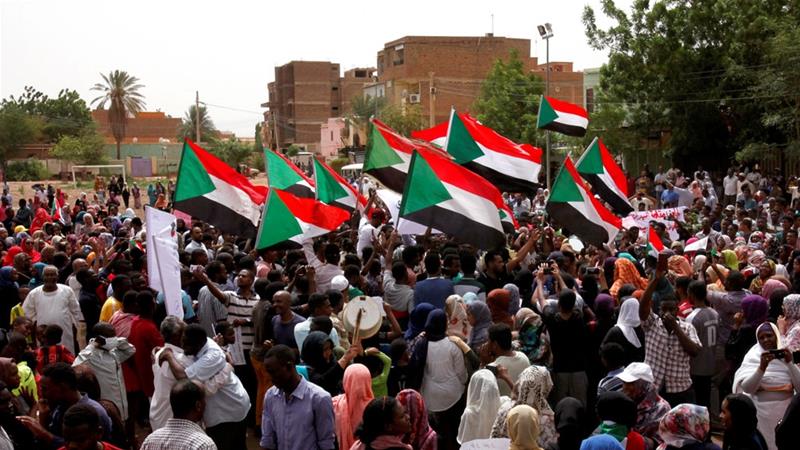Sudan’s ruling military council and the opposition coalition have reached an agreement to share power during a transition period leading to elections, an African Union (AU) mediator announced on Friday.
The two sides, which have held talks in Khartoum for the past two days, agreed to “establish a sovereign council by rotation between the military and civilians for a period of three years or slightly more,” Mohamed Hassan Lebatt said at a news conference.
“This agreement opens the way for the formation of the institutions of the transitional authority, and we hope that this is the beginning of a new era,” said Omar al-Degair, a leader of the Forces for Freedom and Change (FFC) – an umbrella organisation of opposition groups.
General Mohamed Hamdan Dagalo, deputy head of the Transitional Military Council (TMC), said that the agreement will be “comprehensive and will not exclude anyone”.
“We would like to reassure all political forces, armed movements and all those who participated in the change from young men and women … that this agreement will be comprehensive and will not exclude anyone,” Dagalo said.
“We thank the African and Ethiopian mediators for their efforts and patience. We also thank our brothers in the Forces for Freedom and Change for the good spirit,” said Dagalo, who heads the Rapid Support Forces (RSF) accused by the FFC of crushing a June 3 sit-in that left dozens dead.
Ethiopia and AU had stepped up mediation efforts following the breakdown of talks.
‘A façade, a PR exercise’
Azaz Elshami, a Sudanese-American human rights advocate dubbed the deal “a façade, a PR exercise”.
It’s very hard for me to trust this power sharing. Hemedti [General Mohamed Hamdan Dagalo and [Abdel Fattah] al-Burhan are part of the sovereign council,” said Elshami from Alexandria, Virginia, the US.
“Out of the three years, military will get two years and then the civilian technocrats will have a year later,” she said.
“This could have been acceptable prior to June 3 violence because at that point of time people had little trust in the military institutions, and Hemedti was seen as an ally.
“What I see from the dynamics of the power, that the FFC has been forced to accept something that is acceptable to other stakeholders,” Elshami told Al Jazeera.
“This is going to be the first step in a very, very long process.”
The two sides also agreed to form an independent technocratic government and to launch a transparent, independent investigation into violent events in recent weeks.
The TMC and the opposition coalition have been wrangling for weeks over what form Sudan’s transitional government should take after the military deposed long-time President Omar al-Bashir on April 11.
The establishment of a legislative council, which was previously agreed, will be postponed, they said. The ruling military council had agreed to allow the FFC coalition to take two-thirds of the legislative council’s seats before security forces violenlty dispersed the sit-in on June 3.
Opposition medics say more than 100 people were killed in the dispersal and subsequent violence on June 3. The government put the death toll at 62.
The military suspended the talks in the wake of the sit-in violence which attracted international condemnation.
The streets of Omdurman, Khartoum’s twin city across the Nile River, erupted in celebration when the news broke, a Reuters witness said.
Thousands of people of all ages took to the streets, chanting “Civilian! Civilian! Civilian!”
Young men banged drums, people honked their car horns, and women carrying Sudanese flags ululated in jubilation.





